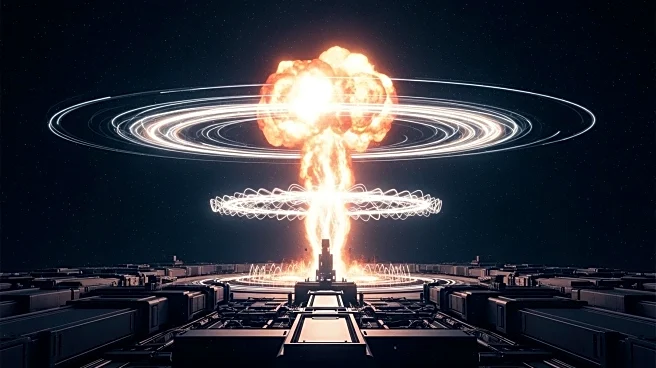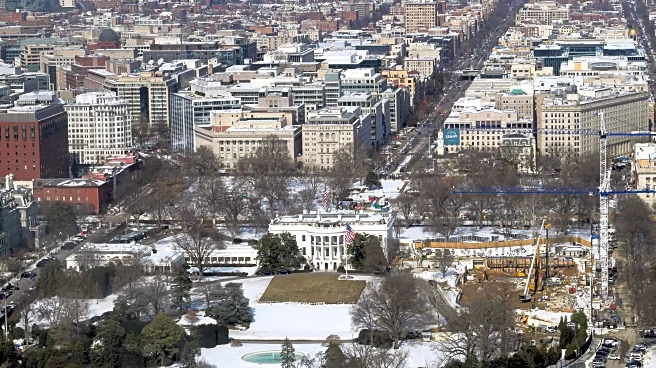What's Happening?
A new proposal has emerged in the field of planetary defense, suggesting the use of nuclear devices to deflect or destroy asteroids that pose a threat to Earth. This idea builds on the success of NASA's DART mission, which altered the course of the asteroid Dimorphos through kinetic impact. The proposal, detailed in a recent study, advocates for using nuclear explosive devices to vaporize parts of an asteroid, thereby changing its trajectory or breaking it into smaller, less dangerous pieces. Advanced simulations indicate that X-rays from a nuclear detonation could superheat an asteroid's surface, creating thrust to push it away. Despite the potential effectiveness, the proposal faces legal challenges due to treaties like the Outer Space Treaty, which restricts nuclear weapons in space.
Why It's Important?
The proposal to use nuclear explosions for asteroid deflection is significant as it offers a potentially rapid response to large threats detected late. This method could be crucial in scenarios where time is limited and other techniques, such as gravitational tractors or laser ablation, may not be feasible. However, the idea raises ethical and legal concerns, particularly regarding the fragmentation of asteroids, which could create multiple smaller threats. The proposal also highlights the need for international collaboration and dialogue to balance technological feasibility with geopolitical tensions, ensuring Earth's safety without escalating arms races in space.
What's Next?
Future missions and policy implications are being considered, with designs like NASA's HAMMER spacecraft potentially serving dual purposes for deflection or nuclear delivery. These innovations could integrate into broader planetary defense frameworks. Critics emphasize the importance of early detection via telescopes to enable non-explosive methods, while ongoing research and modeling continue to explore the feasibility of nuclear deflection strategies. International collaboration through entities like the International Asteroid Warning Network is crucial to share data and inform strategies.
Beyond the Headlines
The proposal underscores the urgency of asteroid defense in an era of increasing near-Earth object discoveries. It calls for rigorous testing and international dialogue to turn science fiction into reliable protection. Ethical dilemmas persist, as preparing nuclear options without actual space tests requires innovative ground-based creativity to avoid violating international accords. Balancing risks in cosmic safeguards is essential to prioritize Earth's safety while preventing unintended consequences like radioactive fallout in space.











